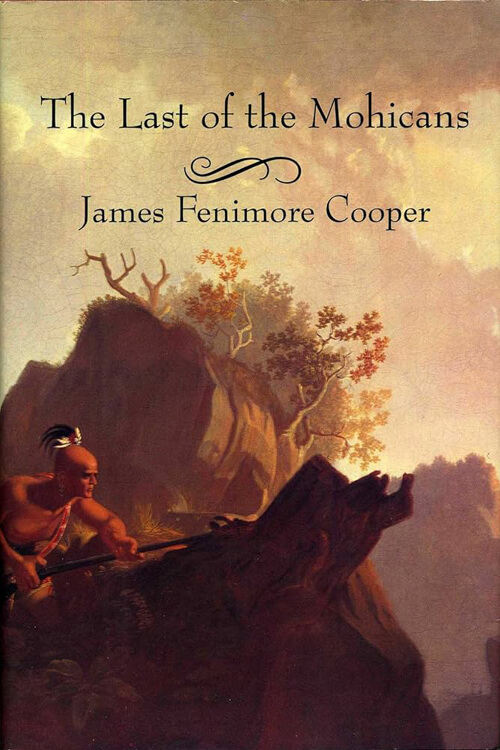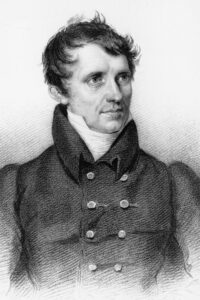
The Last of the Mohicans
It was a feature peculiar to the colonial wars of North America that the toils and dangers of the wilderness were to be encountered before the adverse hosts could meet. A broad and impervious boundary of forests severed the possessions of the hostile provinces of France and England. The hardy colonist and the trained European who fought at his side frequently expended months struggling against the rapids of the streams or in effecting the rugged passes of the mountains in quest of an opportunity to exhibit their courage in a more martial conflict.
But, emulating the patience and self-denial of the practised native warriors, they learned to overcome every difficulty. It would seem that, in time, there was no recess of the woods so dark nor any secret place so lovely that it might claim exemption from the inroads of those who had pledged their blood to satiate their vengeance or to uphold the cold and selfish policy of the distant monarchs of Europe. Perhaps no district throughout the vast extent of the intermediate frontiers can furnish a livelier picture of the cruelty and fierceness of the savage warfare of those periods than the country which lies between the headwaters of the Hudson and the adjacent lakes. The facilities that nature had offered the combatant’s march were too pronounced to be neglected. The lengthened sheet of the Champlain stretched from the frontiers of Canada, deep within the borders of the neighbouring province of New York, forming a natural passage across half the distance the French were compelled to master to strike their enemies.
Read or download Book
James Fenimore Cooper
James Fenimore Cooper (September 15, 1789 – September 14, 1851) was an American writer of the first half of the 19th century. His historical romances, which depict colonial and indigenous characters from the 17th to the 19th centuries, brought him fame and fortune.
Biography.
He lived much of his boyhood and the last fifteen years of life in Cooperstown, New York, founded by his father, William Cooper, on property he owned. Cooper became a member of the Episcopal Church and contributed generously to it shortly before his death. He attended Yale University for three years and was a member of the Linnean Society. After a stint on a commercial voyage, Cooper served in the U.S. Navy as a midshipman, where he learned the technology of managing sailing vessels, which greatly influenced many of his novels and other writings. The book that launched his career was The Spy, a tale about espionage set during the American Revolutionary War and published in 1821. He also created American sea stories.
His best-known works are five historical novels of the frontier period, written between 1823 and 1841, known as the Leatherstocking Tales, which introduced the iconic American frontier scout, Natty Bumppo. Cooper’s works on the U.S. Navy have been well-received among naval historians, but his contemporaries sometimes criticized them. Among his more famous works is the Romantic novel The Last of the Mohicans, often regarded as his masterpiece. Throughout his career, he published numerous social, political, and historical fiction and non-fiction works intending to counter European prejudices and nurture original American art and culture.






